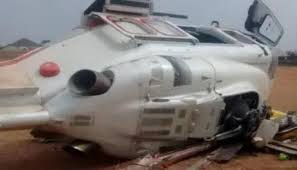CliqJets Consulting
Fostering Growth, Innovation, and Sustainability in Airline Operations
Nigeria’s Strategic Move Toward Aircraft Leasing and the Role of IDERA in Aviation Stability

As Nigeria prepares for a surge in air travel during the holiday season, the aviation industry faces heightened expectations from the public to address persistent issues of flight delays, cancellations, and aircraft shortages. Recent efforts led by the Minister of Aviation and his team have positioned Nigeria favorably to secure advantageous aircraft leasing deals. This strategic positioning could potentially enhance the availability of commercial aircraft, providing stability and efficiency during the high-demand Christmas season. To further explore leasing opportunities, Boeing has invited Nigeria’s aviation stakeholders to discuss a cooperative leasing package, marking a critical step toward resolving aircraft scarcity and operational disruptions.

In this context, the regulatory framework established by Nigeria’s Civil Aviation Authority (NCAA) under the Irrevocable Deregistration and Export Request Authorization (IDERA) becomes increasingly relevant. IDERA, aligned with the Cape Town Convention, is a legal instrument that safeguards creditors’ rights in cases of airline financial default, ensuring aircraft can be repossessed, deregistered, and exported efficiently. This mechanism helps maintain Nigeria’s attractiveness as a destination for leasing companies by minimizing financiers’ risks and streamlining asset recovery.
Boeing’s Invitation: A New Dawn for Nigeria’s Fleet Expansion
Boeing’s invitation to Nigeria’s aviation stakeholders signals a recognition of Nigeria’s expanding role in the global aviation sector. With the strategic insights from the Minister of Aviation and regulatory support like IDERA (Aircraft Leasing), Nigeria is now in a stronger position to negotiate favorable leasing terms, potentially transforming the leasing landscape for Nigerian airlines. By fostering a regulatory environment that safeguards financier interests, Nigeria ensures a steady influx of leased aircraft into the market, stabilizing flight operations and enhancing overall fleet availability during high-demand periods.
How IDERA Secures Aircraft Leasing in Nigeria’s Aviation Sector
Aircraft leasing allows airlines to operate modern fleets without incurring the significant capital costs associated with ownership. Leasing has become a mainstay for airlines in Nigeria, offering the flexibility to expand and update fleets in response to travel demand, such as during peak periods like the holiday season. Yet, for the system to work effectively, leasing firms require solid assurances that they can swiftly reclaim assets in cases of financial default.
This is where IDERA comes into play. By authorizing lessors and financiers to request deregistration and export directly from the NCAA without interference from the lessee, IDERA gives creditors the legal security necessary to lease assets in Nigeria. It streamlines the repossession process, reducing potential financial losses and legal complexities. With the IDERA mechanism in place, Nigeria fosters a creditor-friendly environment, which encourages competitive leasing arrangements that can meet the industry’s needs.
The IDERA Process: From Issuance to Exportation
When an aircraft is leased in Nigeria, IDERA serves as a pre-emptive measure, allowing the creditor to secure the right to repossess, deregister, and export the aircraft in cases of default. The process involves several key steps:
- Issuance of IDERA: When an airline leases an aircraft, it signs an IDERA agreement in favor of the lessor or financier. This grants the creditor the legal right to request deregistration and exportation of the aircraft from the NCAA if the airline defaults.
- Triggering Default: The creditor may issue a formal notice if an airline fails to meet its financial obligations, such as missing payments. Upon receiving the notice, the airline typically has a stipulated period to remedy the default.
- Notice to NCAA: If the default is unresolved, the creditor submits a formal request to the NCAA along with the IDERA document to initiate deregistration and export.
- Verification and Deregistration by NCAA: The NCAA then verifies the IDERA and the default claim, and, if in order, issues a deregistration certificate, removing the aircraft from Nigeria’s civil aviation registry.
- Export Coordination: The NCAA and customs authorities coordinate to facilitate the export documentation, allowing the aircraft to be transported out of Nigeria to a location of the creditor’s choosing.
- Return of Aircraft: Once all formalities are complete, the aircraft is returned to the lessor for reassignment, sale, or new lease arrangements.
Implications of IDERA (Aircraft Leasing) for Nigerian Airlines
The IDERA mechanism reinforces the importance of financial discipline within airlines. Missing payments or defaulting on lease agreements can immediately affect fleet size, route availability, and operational viability. For airlines operating in Nigeria, IDERA is a reminder that proactive financial management and strong creditor relationships are essential. By maintaining open communication, addressing potential financial challenges early, and diversifying funding sources, airlines can mitigate the risk of repossession.
Conclusion: The Path Forward for Nigerian Aviation
Nigeria’s strategic advancements in aviation reflect an increasingly robust framework to support leasing arrangements that bolster the country’s fleet availability. The IDERA protocol continues to provide a foundation for Nigeria’s credibility with international financiers and leasing companies, ensuring the stability and growth of its aviation sector. As airlines adopt financial best practices and leverage supportive regulatory mechanisms, Nigeria is set to experience a more reliable, efficient, and resilient aviation industry—especially as peak travel periods approach.
In summary, as Nigerian aviation stakeholders engage with Boeing, they carry the potential to usher in a new era of operational stability, enhanced by sound financial practices and regulatory frameworks that protect both financiers and airlines. This proactive approach signals a bright future for Nigerian aviation, balancing industry growth with reliable service delivery.
Selar: https://selar.co/skyboundHarmonyDownloadable
Selar: https://selar.co/SkyboundHarmonyreadonly
Selar Hardcopy in Nigeria only: https://selar.co/ep071p
Amazon Paperback: https://a.co/d/3VslaN5
Amazon Kindle Edition: https://a.co/d/gMhuaXk





0 Comments